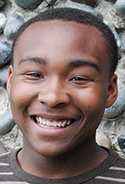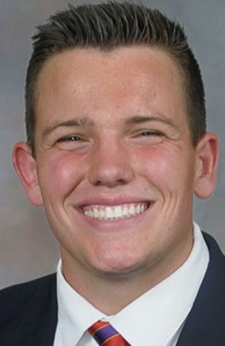Expect a different kind of convocation ceremony this year.
Over the past nine months, a committee of faculty, staff and students has been hard at work reimagining University Convocation, which is set for 10 a.m. Friday at Beasley Coliseum.
Convocation has been an annual tradition on the Pullman campus since 2006. It serves as a bookend to commencement, introducing new students to the academic community and serving as an induction ceremony of sorts.
“There is definitely a ceremonial aspect to it, but we want to make it more accessible for students,” says Sara Van Steenbergen, who heads the convocation committee. “We’re trying to examine the traditional practices and tailor them to our students. The more convocation can serve as a holistic, welcoming experience, the more community resonance it has.”
The university’s faculty and staff are invited to join in the convocation processional, in which they enter the event as a group to show support for new students.
 It’s a simple way for faculty to offer a friendly face and help ease students’ anxiety as the semester begins, says Van Steenbergen. “The WSU community is here for the students and we absolutely want faculty to feel like they’re an important part of it, because they’re integral to that welcoming process.”
It’s a simple way for faculty to offer a friendly face and help ease students’ anxiety as the semester begins, says Van Steenbergen. “The WSU community is here for the students and we absolutely want faculty to feel like they’re an important part of it, because they’re integral to that welcoming process.”
When professor Carmen Lugo-Lugo addresses students at this week’s convocation ceremony, she will tell students about receiving her degree from the University of Puerto Rico and facing a future filled with questions.
“I want to help students understand that I know for many of them, being here is scary,” says Lugo-Lugo. “The message is, it’s okay to not know what you want to do. That will open your mind to exploring. Slow down, explore options and enjoy the process.”
The University Convocation also aims to connect students to one another.

When Jordan Frost delivered the inaugural sophomore welcome address at convocation in 2014, it became a turning point for at least one new student in the audience. Garrett Kalt was so deeply impressed by the sincerity of Frost’s message, particularly his honesty about the difficult parts of the college experience, that he felt inspired to email Frost and ask if they could meet sometime.
Later in the semester, the two Cougs met over a meal at Panda Express in the CUB. They quickly became friends. When Kalt mentioned that he wanted to get more involved in campus life, Frost helped him get started. In 2016, Frost and Kalt decided to run for the ASWSU presidency — and in spring 2017, Jordan Frost was elected ASWSU president and Garret Kalt vice president.
“If I had not met Jordan Frost,” said Kalt, “my entire WSU experience would have been different.”
This year’s reimagining of the convocation aims to capture the essence of that inspiration.

The sophomore welcome this year will be delivered by engineering major Blake Gurney. A member of the Sigma Phi Epsilon fraternity and a former ASWSU freshman senate delegate, he developed a strong connection to the university when his brother — a passionate Coug — passed away. During the difficult months surrounding his brother’s passing, fellow Cougs rallied around the family.
“Cougs take care of Cougs. I’ve seen it firsthand,” said Gurney. “I want new students to know that this experience can and will be great if they decide to go all-in on it.”
The entire Pullman campus community is invited to attend University Convocation at 10 a.m. on Friday, August 17, at Beasley Coliseum. For more information, see convocation.wsu.edu.






